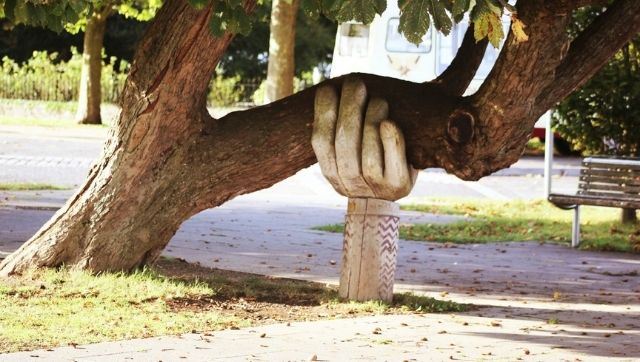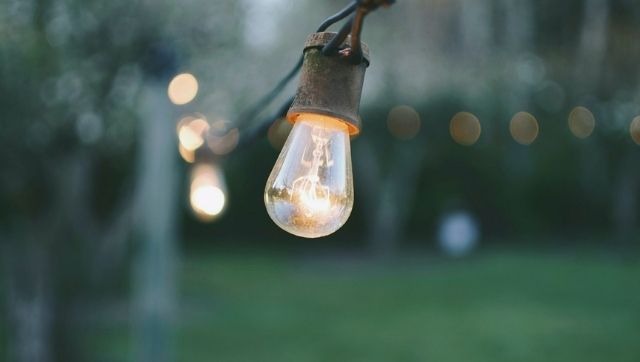This was the first sermon I wrote and preached at seminary for our scripture reading class.
Exodus 4:5-15
“When the king of Egypt was told that the people had fled, the minds of Pharaoh and his officials were changed toward the people, and they said, ‘What have we done, letting Israel leave our service?’ So he had his chariot made ready, and took his army with him; he took six hundred picked chariots and all the other chariots of Egypt with officers over all of them. The LORD hardened the heart of Pharaoh king of Egypt and he pursued the Israelites, who were going out boldly. The Egyptians pursued them, all Pharaoh’s horses and chariots, his chariot drivers and his army; they overtook them camped by the sea, by Pi-hahiroth, in front of Baal-zephon.
“As Pharaoh drew near, the Israelites looked back, and there were the Egyptians advancing on them. In great fear the Israelites cried out to the LORD. They said to Moses, ‘Was it because there were no graves in Egypt that you have taken us away to die in the wilderness? What have you done to us, bringing us out of Egypt? Is this not the very thing we told you in Egypt, “Let us alone and let us serve the Egyptians’? For it would have been better for us to serve the Egyptians than to die in the wilderness.’ But Moses said to the people, ‘Do not be afraid, stand firm, and see the deliverance that the LORD will accomplish for you today; for the Egyptians whom you see today you shall never see again. The LORD will fight for you, and you have only to keep still.’”
Then the LORD said to Moses, ‘Why do you cry out to me? Tell the Israelites to go forward.’”
Sermon
I have been thinking a lot this Advent season about waiting. I enjoy the fact that we have an entire liturgical season that tells us to wait. In the midst of exams, however, and final papers and semester grade anxiety, waiting seems like the worst of options. If I wait, will my papers write themselves? If I wait, will my grade change itself . . . for the better? If I wait, will I magically be transported home with all my work done, my room clean, my presents bought and wrapped? It is not a season for waiting in this place. It is a season for finishing, for productivity, and final grunts of effort. And yet, as hard as I work, as many late nights as I pull, there are things in my life that refuse to be finished, to be tidied up, understood, written down, and turned in; issues that seem to require productivity and yet halt it at every step and make me wait. For me they are personal: what is my calling? How do I make sense of a broken relationship and dashed dreams? How do I make a difference in this world that needs so much, too much? We all have issues that trip up productivity. What is in your life that refuses to be resolved? And how is it that you negotiate it?
As I think about waiting and finishing, I think a lot about Advent. About what it means to wait for God – for God to break in and utterly transform our worlds. What is the value of waiting? How much will the breaking in hurt?
I come to this passage in the exodus story bringing all of my questions, my exhaustion from being productive, and my frustration at the things that refuse to be finished. And in this passage,
I meet the Israelites. Slaves who have just recently been released. But it is trickier than that. They have not been released by a powerful king who has destroyed their captor. No, they have been released by a God who chose to speak to them through a man who stutters and is of questionable background, by a God who refuses to reveal God’s self to them. Their captor has not been destroyed, rather he has been duped. And off they go. For who passes up freedom when it is laid in their lap? So they are headed away, and they reach a sea, and I am thinking their situation looked something like this: they have been walking for days, they are tired, their children are cranky, they miss their homes, their neighbors, they are wondering where they are headed and they reach a sea. There is no easy path through it or around it, no boat to take them across it, no tunnel to go under it, so they camp. A time to rest; a time to figure out where to go next. And then, all of the sudden, they look back and there on the horizon is the army of all armies: their captor has come for them. A wall of water is before them, a wall of violence is behind them, and they have nowhere to go. All efforts at productivity will be frustrated: go into water and drown; go back and be killed or worked to death. It is a situation that must be resolved and there is no way to resolve it.
What is it like to wait in that place without enough time for a solution? The text tells us, the words are clear: they are closed in, they are overtaken, they have great fear, and they are angry. Hear their words: “was it because there were no graves in Egypt? What have you done to us? Let us alone. It would have been better to serve the Egyptians than to die.”
What are they to do? What are we to do? What do we do when find ourselves between a rock and a hard place? Between an army and a sea? What to do we do in a world that is dying for lack of justice and stewardship and love when we are only one person? What to do we do in a country that is so dominated by fear that speaking out about a different way questions your loyalty? What do we do in our own lives when the way forward feels like certain death and the way back is unhealthy? What do we do?
The text is clear and two-fold. First, we are told with the Egyptians, ‘do not fear, keep still and watch for what the Lord is going to do for you.’ Keep still. Watch. Do not fear. Hard words when the Egyptian army is behind you and the sea is in front of you. Hard words when justice is no where to be found. Hard words when people around us are in despair, and children are dying of hunger, and wars are being waged. Keep still? Watch? That is more faith than responsibility and it goes against our nature. We are doers. We are gifted and talented and we can fix things. Don’t tell me to keep still and watch. I can make a difference. Even as one solitary person in this world, I can make a difference. My choices matter. Don’t tell me to keep still and watch. If I am not part of the solution, I am part of the problem. Don’t tell me to keep still and watch. But the words are there. And not only there but throughout the Bible. Mary is told not to fear and to wait and watch for nine months, and then 31 more years. The Psalms tell us to be still and know that God is God. Isaiah reminds us that strength comes in quietness and stillness. Keep still . . . watch . . . wait.
And what happens exactly? God transforms. The wall in front of the Israelites is opened. A path emerges through the waters, a way forward is found. God transforms our world – makes a path where before there was none. God provides. God saves. God acts for us in our world. How lucky are we?
Too bad the story does not end there. It doesn’t end there for Mary, it doesn’t end there for the Israelites, and we know from experience that it doesn’t end there for us. So here are the Israelites: Pharaoh is encroaching and the waters have just been divided. Praise be to God. All they have to do now is go forward – go into the sea on dry ground. Easy . . . for us, because we’re not there. Here are the realistic options. Go forward, through waters that look like they will spill over at any moment and take your life, and if you do make it through them you will find yourself in the wilderness, with nowhere to go and not enough provisions to last long. Or, turn back. Surrender. Work for your living. Death or slavery? Unknown or known? What would you choose? What have you chosen before? The text is two-fold. We are to keep still and watch and then we are to make the hardest decision of all. Go forward into what looks like certain death or go back to what you know you can survive. The answer is clear. You go back. Good stewardship of your life says, protect it. Good common sense says, turn around, put up your hands and make the best of things. You go back.
Unless of course you want to be a person of faith. A person of faith sees the way forward, acknowledges that it might be fluke, a chance of coincidence and not God, and they go forward anyway. It’s not so much a vision that they go with, for the vision is beyond even them. It is a promise they go forward with. A promise that God does provide a path when we need it. That God goes with us to something better, even if we cannot imagine it. It is a hard choice, and not often a smart one. But it is the choice we are called to as people of faith.
In our world we are called to look for the path of change and hope that is for us. It will be different for each person. Waiting for it is hard. It is long and the way forward is blocked. But keep still. Watch and wait. For the wall will split. And the way forward will appear. It will not be the path that you want. Your savior will be a baby rather than a king. The path will be lined with walls of water rather than brick. But on the other side, further down the path, is the promised land you cannot even imagine.
So, keep still. Watch. Wait. And then, Go forward. Know that the way will be a wilderness for longer than you want. But trust the promise and look for God.




